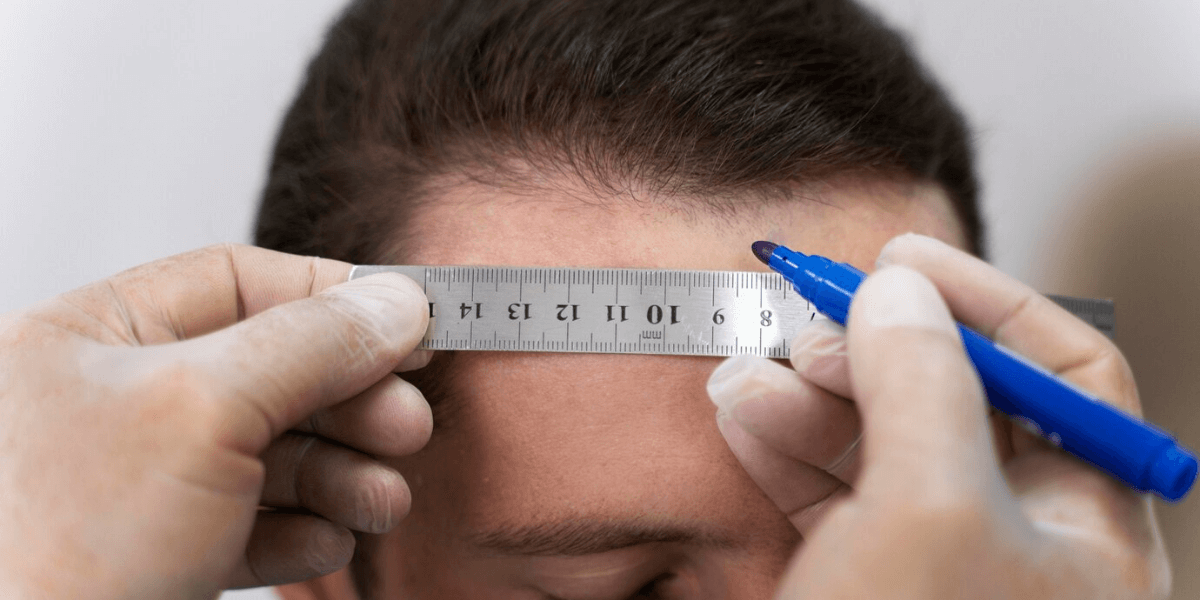 Whatsapp
Whatsapp

Due to genetic factors or other reasons, the front hair may fall out or become sparse. When you encounter such a problem, you can consider front hairline design. In this article, we talked about the front hairline design. We wish you a pleasant reading.
Front hairline design is a procedure performed to restore the appearance of hair after hair loss and thinning. In addition, front hairline design is a very important step in hair transplantation procedures. The front hairline should be carefully planned according to the person's face shape, age, gender and personal preferences. In order to provide a natural and aesthetic appearance, the hairline must be positioned and created correctly.
In the first step of the frontal hairline design, the hair transplant specialist, after planning according to the facial features of the person, removes the follicles required for hair transplantation from the scalp and carefully places them in the frontal hair area. This stage is critical for the hair to look natural.
Frontal hair loss in men is a very common condition caused by genetic and hormonal factors. For this reason, many men resort to frontal hair transplantation to reverse the effects of hair loss and restore their hair's former full and healthy appearance. This is one of the most typical problems of male pattern hair loss. These gaps formed by hair recession at the corners of the forehead can take a more pronounced M-shape over time. During hair transplantation, this natural recession is taken into account and the placement of the hair is done in accordance with the natural appearance and age of the person.
Women's hairline should generally have softer curves and therefore hard transitions should be avoided. This emphasizes the feminine appearance and graceful features of the face and emphasizes natural beauty. The design of the front hairline should take into account the natural density of the hair and its balance with the rest of the hair.
There are some factors to be considered to make the front hair transplant design look natural. When these factors are taken into consideration, the results of the procedure will look natural. You can find these factors below:
When designing a natural hairline, gender is an important factor in the design process. This is because men and women may have different types of hair loss. The hairline designed for men should be proportional to the upper part of the face and should not be too low, as this can create an artificial look. Hairline design for women should take an approach that will cover the width of the forehead area in a balanced way and emphasize the feminine lines of the face.
People's forehead muscles move in different ways during facial expressions. These muscle movements can pull and push the skin of the forehead, which can affect the appearance of the hairline. The design of the hairline should be done with these muscle movements in mind and should not be done on top of the forehead muscles.
The general shape of the face (oval, round, square, long, etc.) affects how the hairline is designed. For example, on a round face, the hairline may be higher and significantly curved, while on a long face, a straighter line may be preferred. Taking facial features into account ensures a successful design of the natural hairline. Since each individual's facial structure is different, the hairline design should be unique and individualized. Hair transplant specialists evaluate these factors and design a natural and aesthetic hairline suitable for each patient.
Determining the correct number of hair follicles to be transplanted is both aesthetically and practically important. This not only makes the hairline look natural but also helps to protect the donor area. Hair transplant specialists evaluate these factors and make a special transplant plan for each patient.
FUE technique and DHI technique are used in front hairline design. Both techniques produce natural-looking results. FUE and DHI offer advanced techniques to carefully control the density, direction and natural appearance of the hair. Which technique is preferred depends on the individual's hair loss, hair type, general health and personal preferences. Both methods should be carefully performed by an experienced hair transplant specialist. If you want to get more detailed information about these methods, you can read our article DHI vs. FUE Hair Transplant: Which is Better? You should also take good care of your hair after a hair transplant. After the front hairline design, you can get the Mossi 6-month therapy set and apply a great care. This set contains products that contain all the requirements your hair needs.
The hair density at the front hairline should be adjusted according to some factors. You can find these factors below:
If your front hair is also falling out, you can get a magnificent appearance by choosing the front hairline design. For more information, you can visit our Hair Transplant in Turkey page and contact us.
Which hairline is best for hair transplant?
Everyone's face shape, forehead structure, etc. features are different. For this reason, there is no one-size-fits-all hairline design. Hairline design is determined and applied individually.
How is the hairline determined for transplant?
When determining the hairline, factors such as the person's face shape, age, gender, etc. are taken into consideration and the most appropriate shape is determined.
The front of my hair has fallen out, what should I do?
If your front hair has fallen out, you can have a hair transplant procedure. Hair transplant specialists design the front hairline with great care and make it look natural.